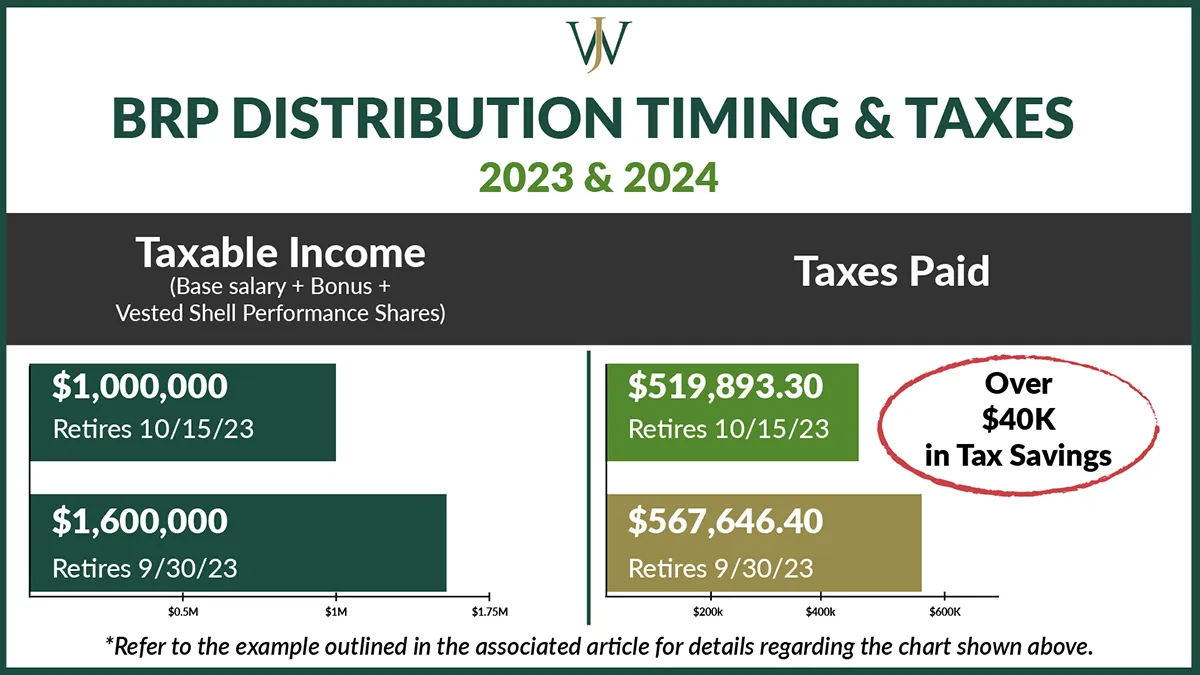Featured Post:

How Waiting 15 Days to Retire May Save You Thousands in Taxes on Your BRP Payouts
I was recently working with a Shell executive client, let’s call her Lynn, who had been putting in long hours on a challenging assignment and was ready to retire by September 30, 2025. I worked with...
How Waiting 15 Days to Retire May Save You Thousands in Taxes on Your BRP Payouts
by Nick Johnson, CFA®, CFP®
September 30, 2025
Estate Planning Essentials, Documents & Common Mistakes
by John Siegel, CFP®, EA
September 29, 2025
Stock Market News and Investment Insights for 2025
by Nick Johnson, CFA®, CFP®
August 29, 2025
When to Hire a Financial Advisor and When You Shouldn’t
by Sarah Sikorski, CPA, CFP®
June 27, 2025
Why Optimizing Your BP Pension Comes Down to Timing
by John Siegel, CFP®, EA
June 19, 2025
BP 401(K) Changes Impacting the Company Match
by John Siegel, CFP®, EA
June 12, 2025
Understanding Chevron's LTIPs: Restricted Stock, Performance Shares & Stock Options
by Alexis Long, MBA, CFP®
April 21, 2025
Chevron’s Relocation to Houston: What Employees Need to Know
by Alexis Long, MBA, CFP®
March 31, 2025
How to Evaluate BP Disability Insurance Costs & How Much You Need
by Sarah Sikorski, CPA, CFP®
March 18, 2025
BP Life Insurance Benefits: Do You Need It & How Much is Enough?
by Sarah Sikorski, CPA, CFP®
March 18, 2025




